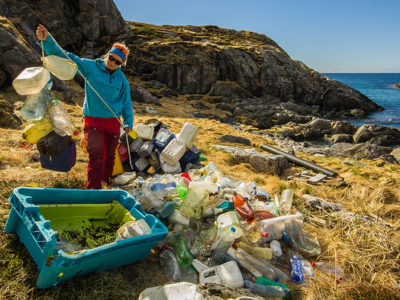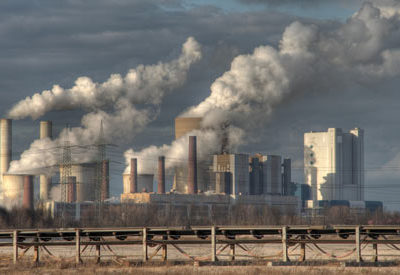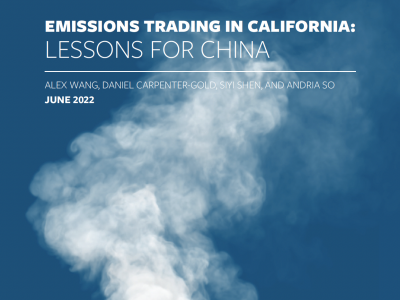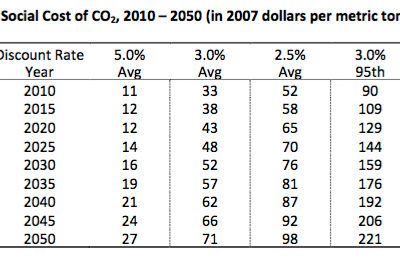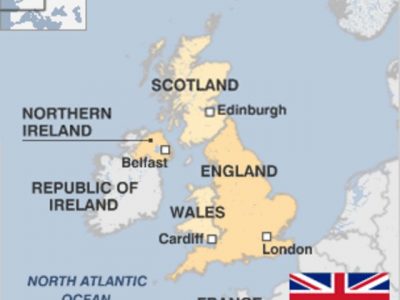General
California Adopts Nation-Leading Legislation to Cut Plastic Pollution
Extended producer responsibility law will reduce single-use waste and shift responsibility to industry
In a welcome reprieve from news coming out of the Supreme Court, here’s an uplifting story from the Golden State: On Thursday, Governor Newsom signed SB 54, a comprehensive piece of legislation aimed at significantly reducing single-use waste. The law will affect just about every type of plastic packaging you see walking down the supermarket …
Continue reading “California Adopts Nation-Leading Legislation to Cut Plastic Pollution”
CONTINUE READINGCatch 22 at the Supreme Court
When “All-encompassing” Isn’t
There is quite a bit to unpack with West Virginia v. EPA. I will leave to others a discussion of “major question doctrine” and other aspects of the West Virginia case. I want to focus on the disingenuous way the Supreme Court deals with a previous ruling, and its implications for states. In 2011, in …
Continue reading “Catch 22 at the Supreme Court”
CONTINUE READINGSome quick reactions to W Va v. EPA
The bad and the good
Dan already has a good post up on the basics of the Supreme Court’s ruling today in the climate case West Virginia v. EPA, with initial thoughts on its implications (and more to come, I’m sure). Here are some quick thoughts from my morning’s reading of the case, in which William Boyd, Andria So and …
Continue reading “Some quick reactions to W Va v. EPA”
CONTINUE READINGThe Supreme Court Curbs Climate Action
The ruling in West Virginia v. EPA was about as good as we could expect given the makeup of the Court.
Today, the Supreme Court decided its most important environmental case since 2007. We didn’t dodge the bullet. It’s more than a flesh wound but it didn’t hit any vital organs . Chief Justice Roberts’s majority opinion leaves EPA other options to reduce carbon emissions from coal-fired power plants. It also gives a fairly narrow reading …
Continue reading “The Supreme Court Curbs Climate Action”
CONTINUE READINGWill Rights of Nature Save The World?
Examining whether granting legal rights to nature could make a difference in how courts understand environmental law
A number of environmental advocates have been pushing a new strategy for environmental protection – seeking to pursue legal rights for elements of nature (such as rivers, lakes, ecosystems, or species), sometimes in alliance with Native American tribes. This approach is not unique to the United States – rights of nature legal approaches have been …
Continue reading “Will Rights of Nature Save The World?”
CONTINUE READINGEmissions Trading in California: Lessons for China
A New UCLA Report for Chinese Regulators and Researchers
We are pleased to announce the release of a new UCLA Law Emmett Institute of Climate Change & Environment report on Emissions Trading in California: Lessons for China. As many of you know, China launched trading for its national greenhouse gas (GHG) emissions trading system (ETS) in 2021. By volume of emissions, the Chinese system …
Continue reading “Emissions Trading in California: Lessons for China”
CONTINUE READINGWhose Interests Count? And How Much?
Whether to consider harms to foreign countries and future generations is controversial. So is how much weight to give harm to the poor.
Should regulators take into account harm to people in other countries? What about harm to future generations? Should we give special attention when the disadvantaged are harmed? These questions are central to climate policy and some other important environmental issues. I’ll use cost-benefit analysis as a framework for discussing these issues. You probably don’t need …
Continue reading “Whose Interests Count? And How Much?”
CONTINUE READINGRemembering Dale Goble
“Father of Wildlife Law” passed away this spring
Dale Goble, professor of law at University of Idaho, passed this April. There are numerous excellent tributes to Dale’s life, available here, here, and here. As a co-author of Dale’s on our Wildlife Law casebook, I wanted to add my personal recognition of his life and work. When I first started teaching law over 15 …
Continue reading “Remembering Dale Goble”
CONTINUE READINGSubnational Climate Action in the UK
As in the U.S., it’s not all about the national government. Not by any means.
Last week, I posted about the British government’s climate policy. In sharp contrast with their American counterparts, British conservatives remain firmly behind the Paris Agreement and supportive of cap-and-trade. In another respect, though, there’s more similarity: in both countries, subnational governments play a key role in climate policy. Here’s what’s happening across Great Britain. Regional …
Continue reading “Subnational Climate Action in the UK”
CONTINUE READINGDesalination: An Essential Part of California’s Water Future
Coastal Commission’s Recent Rejection of Huntington Beach Desalination Project Misguided
Let me begin this commentary with a disclaimer: I was an early and strong proponent of Proposition 20, the successful 1972 California voter initiative measure that enacted the Coastal Act and created the California Coastal Commission (albeit temporarily). I supported with equal enthusiasm the state Legislature’s 1976 enactment of legislation making both the Coastal Act …
Continue reading “Desalination: An Essential Part of California’s Water Future”
CONTINUE READING



